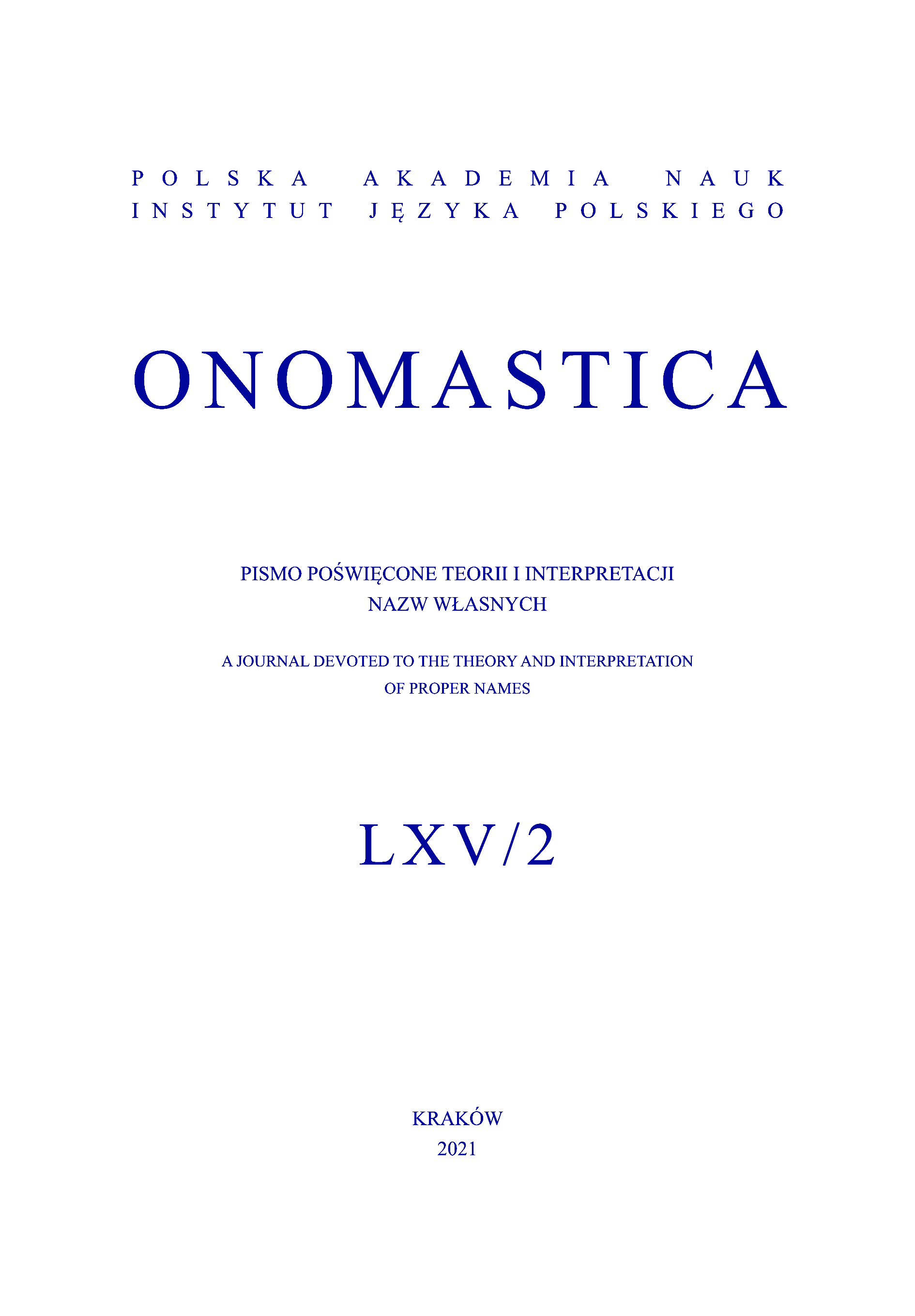Abstract
The subject of the article is to show a new, modified way of avoiding Polish inflection by the Church, understood here as an institution represented by priests. The analysis included first names and surnames excerpted from Holy Mass intentions and parish announcements published on the Internet from October 2020 to March 2021 by selected parishes of the Podkarpacie region. Publishing Mass intentions on the parish website resulted in the fact that inflection mistakes became permanent and could easily be indicated. In order to avoid criticism for linguistic incorrectness, the Church decided not to inflect first names and surnames in the messages published online.
The analysis of the Mass intentions indicates that the Church promotes the use of an official and practical model of inflection that prefers nominativisation of names and surnames, as well as writing them in the form of lists. First names and surnames of the deceased (which are preceded by the symbol of the cross) are written in the nominative form, as opposed to inflected names of living parishioners. As a result, a name/surname that is not inflected (even without the cross) has begun to be perceived as a linguistic symbol of a dead person.
References
Bajerowa, I. (1999). Wstyd nie odmieniać nazwisk [It’s a shame not to inflect surnames]. Język Polski, 79(4), 320.
Grybosiowa, A. (1981). Norma i uzus w powojennej fleksji nazw własnych [Norm and usage in post-war inflection of proper names]. Studia Polonistyczne, 9, 141–148.
Grzelińska, A. i Przyczyna, W. (2004). Grzechy główne języka ogłoszeń duszpasterskich [Cardinal sins in the language of parish announcements]. W: S. Mikołajczak i ks. T. Węcławski (red.), Język religijny dawniej i dziś. Materiały z konferencji. Gniezno 15–17 kwietnia 2002 [Religious Language in the Past and Today. Conference Materials. Gniezno 15–17 April 2002] (s. 207–215). Poznań: Poznańskie Studia Polonistyczne.
Handke, K. (1989). Fleksja nazewnictwa miejskiego na tle systemu fleksyjnego współczesnej polszczyzny [Inflection of urban names and the inflection system of contemporary Polish]. Onomastica, 33, 61–87.
Handke, K. (1992). Ignorancka potoczność [Ignorant colloquiality]. W: J. Anusiewicz, F. Nieckula (red.), Język a Kultura, 5: Potoczność w języku i w kulturze [Language and Culture. Vol. 5: Colloquiality in Language and Culture] (s. 179–190). Wrocław: Wiedza o Kulturze.
Handke, K. (2008). Socjologia języka [Sociology of Language]. Warszawa: Wydawnictwo Naukowe PWN.
Kurek, H. (2001). Rola Kościoła w kształtowaniu współczesnej polszczyzny [Role of the Church in shaping the contemporary Polish language]. W: Z. Cygal-Krupowa (red.), Studia językoznawcze. Dar przyjaciół i uczniów dla Zofii Kurzowej [Linguistic Studies: a Gift of Friends and Students for Zofia Kurzowa] (s. 165–171). Kraków: Universitas.
Kurek, H. (2019). Przemiany fleksji nominalnej w polszczyźnie przełomu wieków XX i XXI (na przykładzie imion i nazwisk oraz appellativów) [Changes in Nominal Inflection in Polish Language at the Turn of the 20th and 21st Century (Based on the Examples of First Names, Surnames and Appellatives)]. Kraków: Wydawnictwo UJ.
EJO = Polański, K. (red.). (1993). Encyklopedia językoznawstwa ogólnego [Encyclopedia of General Linguistics]. Wrocław–Warszawa–Kraków: Zakład Narodowy im. Ossolińskich.
Rospond, S. (1985). Kościół w dziejach języka polskiego [Church in the History of Polish Language]. Wrocław: Zakład Narodowy im. Ossolińskich.
SPP = Doroszewski, W. (red.). (1976). Słownik poprawnej polszczyzny [Dictionary of Correct Polish]. Warszawa: PWN.
SJPSzym = Szymczak, M. (red.). (1978). Słownik języka polskiego [Dictionary of Polish Language] (t. I). Warszawa: PWN.


